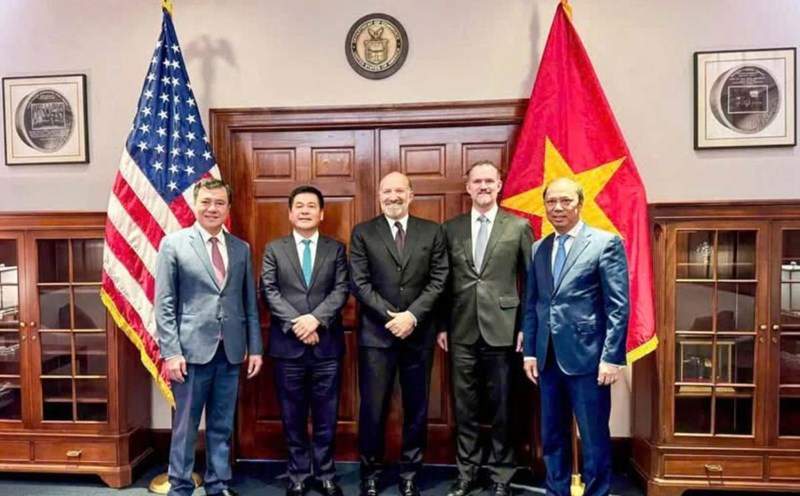This move officially activates part of the bilateral tax agreement reached by both sides last month.
British Prime Minister Keir Starmer welcomed this as a very important day for both countries, as the deal is expected to help British businesses reduce the impact of Washingtons new tax policy.
Under the deal, the US will allow up to 100,000 British cars to enter the market at a 10% tariff, instead of the previous 25% for all imported cars.
The deal also includes lifting some taxes on UK aerospace products to 0%, effective at the end of this month.
However, steel - which is considered a " shortfall" in UK exports to the US and is currently subject to a 25% tariff - has not yet been exempted, although the UK side has said it will continue negotiating to reach a tax rate of 0%.
Although not as comprehensive as a free trade agreement, the tax agreement between the UK and the US is still considered an important step forward. President Trump praised Prime Minister Starmer as someone who does what others have told him for 6 years but has not done it, and jokingly said: The UK is very well protected. Why not? Because I like them.
On the industry side, Mr. Mike Hawes - CEO of the Association of British Automobile Manufacturers and Traders (SMMT) - commented that this is "a great guarantee" for the automobile industry. He said that the temporary suspension of exports in April caused many businesses to suffer, especially Jaguar Land Rover (JLR) - a car company owned by Tata Motors (India) - to lower its revenue forecast due to tax impact.
Hawes analyzed that the 10% tax rate for British cars is still much more preferential than the 27.5% that European rivals such as Germany or Italy have to pay, giving British cars a certain competitive advantage, which are high-end, low-end car lines.
For his part, British Secretary of Commerce Jonathan Reynolds stressed the deal as the result of quick efforts between the two governments to reduce the burden on British businesses.
Under the previous preliminary agreement, the UK agreed to increase the import quota for US beef from 1,000 to 13,000 tons and remove a 20% tax, but still maintain high requirements for food safety standards.
However, many opinions in the UK are still skeptical. The conservative leader Kemi Badenoch called it a tiny tax deal and said the deal was far away from reaching the level of a free trade agreement (FTA). The US still does not have a comprehensive FTA with the UK, as the final approval authority belongs to the US Congress.
However, for newly sworn Prime Minister Starmer, it is still a significant political victory in the context of increasingly fierce global trade competition.
The agreement will take effect seven days after it is published in the US Federal Reserve.











